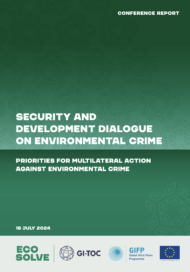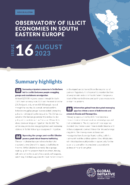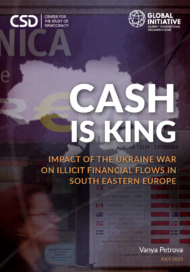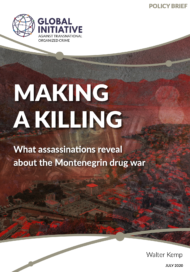Event Details
Where
Online - Zoom Webinar
Posted on 02 Dec 2025
Environmental crime is among the most lucrative transnational criminal activities in the world, generating an estimated US$110–US$281 billion annually and growing at a rate of 5%–7% per year. This report examines how this form of organized crime manifests across the Western Balkans, including pollution, wildlife trafficking, illegal logging, illegal fishing, hazardous waste dumping and other activities that directly harm the environment.
All major forms of environmental crime are present in the Western Balkans. The region faces severe air pollution, river contamination, illegal waste disposal, wildlife trafficking, illegal logging and unregulated fishing. The impacts are significant for both ecosystems and human health. In Serbia alone, 6,592 people die prematurely each year due to ambient air pollution. The report highlights hotspots including illegal logging in Kosovo, Bosnia and Herzegovina and Montenegro; river pollution in Albania and Bosnia and Herzegovina; and wildlife trafficking in Montenegro.
Environmental crime in the Western Balkans is driven by limited public awareness, weak rule of law, low institutional capacity, corruption, and the perception that these offences do not directly harm human lives. Many crimes leave few traces, are easily concealed or are deliberately covered up, making investigations difficult. The number of indictments recorded across the region appears disproportionately low considering the scale of environmental harm. For instance, Serbia registered only 13 environmental crime indictments in 2021, despite having some of the highest air-pollution levels globally.
The report documents cases that illustrate the scale and complexity of environmental crime. These include the illegal import and dumping of hundreds of tonnes of waste from Italy into Bosnia and Herzegovina; dangerously high concentrations of toxic metals in the air and water in Bor, Serbia; the contamination of Albania’s Ishem–Erzen river basin with cadmium and lead exceeding EU standards by more than 100 times; and the illegal killing, trapping and trafficking of protected wildlife species across the region.
Illegal logging represents one of the most severe issues, with Kosovo losing over 700 hectares of forest annually to illegal logging and wildfires. Montenegro faces financial losses amounting to €20 billion through forest-concession mismanagement. Bosnia and Herzegovina has recorded extensive illegal logging linked to unauthorized construction and money laundering.
The report also underlines the crucial role of civil society, journalists and environmental activists, including women who have led long-standing resistance movements in defence of rivers and forests. Their work highlights the importance of community resilience and public participation.
As Western Balkan countries pursue EU accession, aligning legislation with the updated EU Environmental Crime Directive is essential. The report calls for stronger institutional capacity, improved enforcement, enhanced coordination, and greater public awareness. Combating environmental crime requires a multi-sectoral approach involving governments, civil society, academia, the private sector and local communities.




